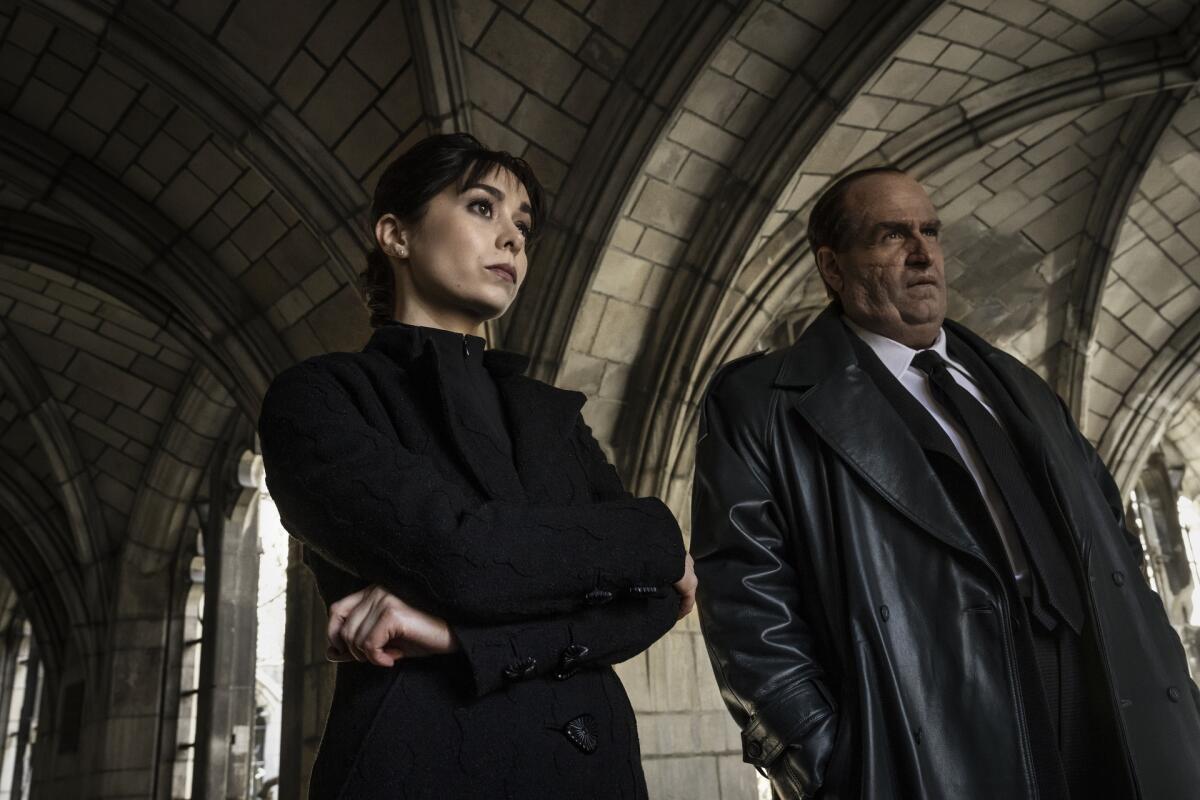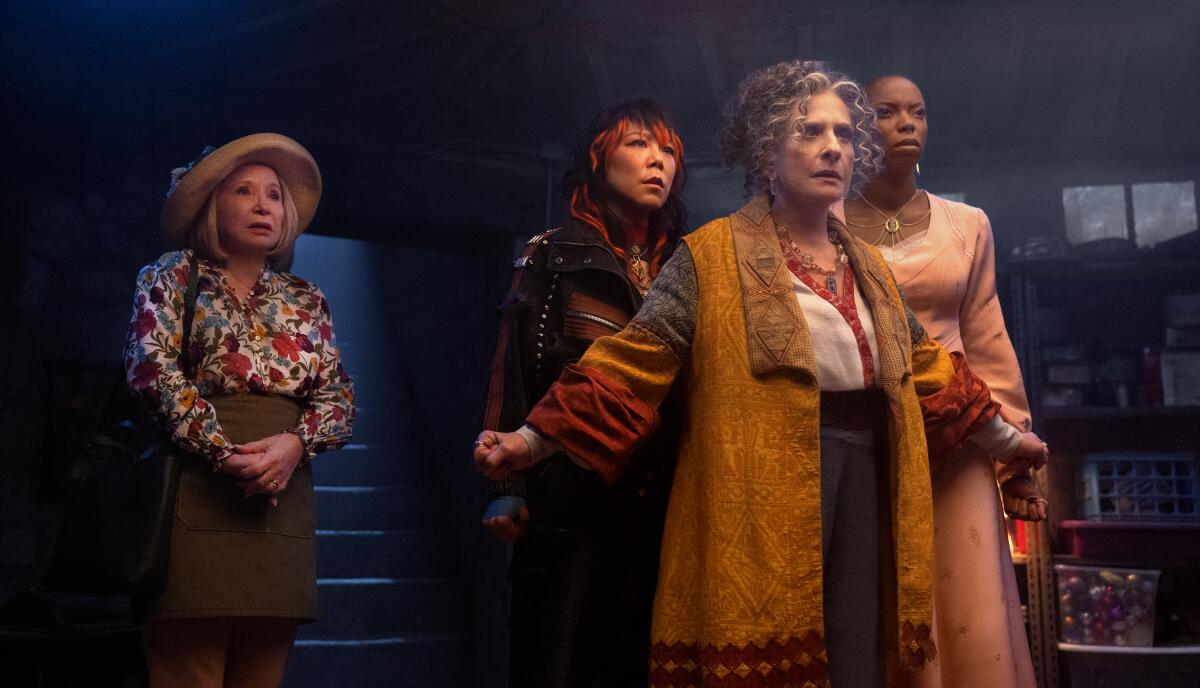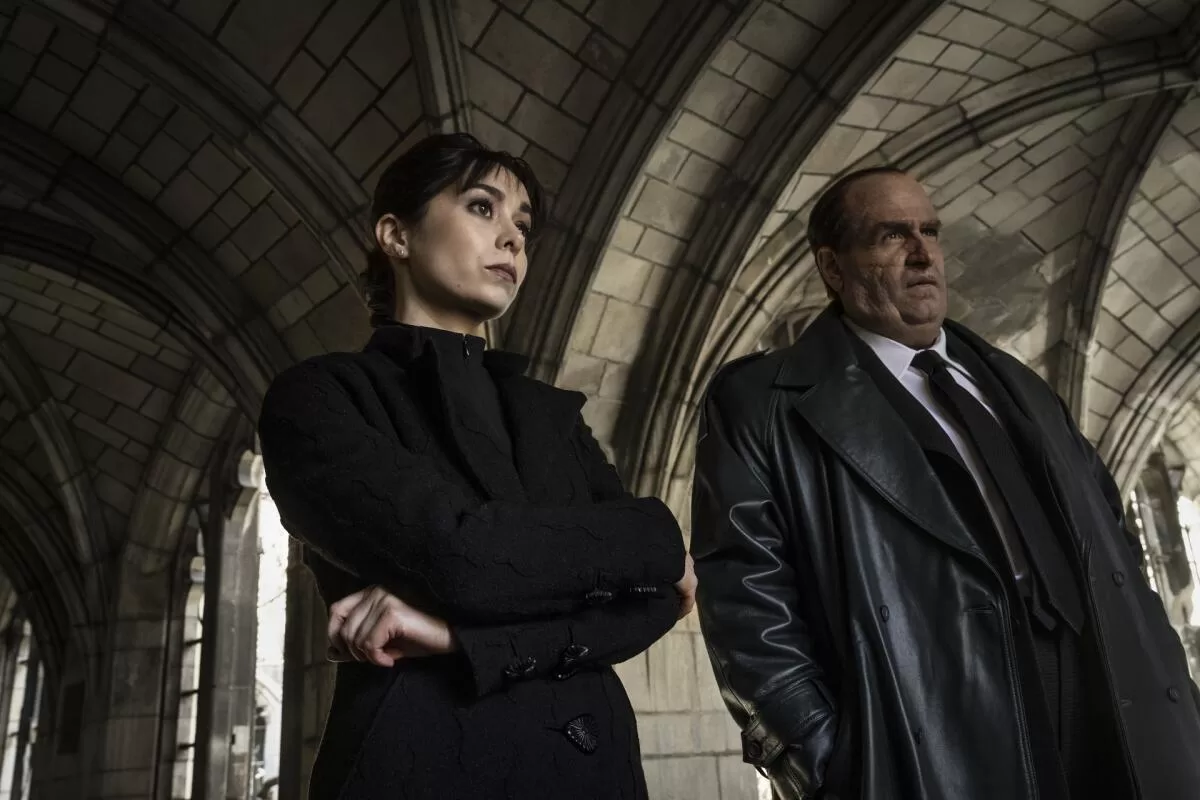There was no way to predict back when Adam West wore the Batman tights — back when Batman wore tights — that comic books would become the main driver of Hollywood content. The 1966 “Batman” movie (budget $1.48 million), sprung from the TV series, did make money, but only the most delirious studio executive or fan could have imagined that, after a 23-year break, Warner Bros. would wager $48 million on bringing back the Caped Crusader.
It was, needless to say, a bet that paid off, and today we live in the world that DC — and Marvel — made. That this success has had a not entirely healthy effect on the movies, if not the movie business, is a point often made — Martin Scorsese famously compared such films to theme parks. And even as they have become more technologically ambitious, they have grown predictable. They have their superficial variations, but as expensive propositions whose failure can undermine a studio’s bottom line, they are on the whole conceptually conservative, with even the artier installments tailored to give the fans what they want.
Television, as I have written before and surely will write again, has been much more interesting when it comes to superheroes. With its lower stakes, there’s been more formal innovation, from romantic comedy to family drama to noir soap opera, with a range of visual approaches, and — perhaps most important — space to develop character and character relationships.
Two new comic-sprung series premiere this week in a battle royale for attention. As if to underscore their ancient corporate rivalry, one, “The Penguin” (HBO, premiering Sept. 19), comes from DC, and the other, “Agatha All Along” (Disney+, now streaming) from Marvel. Each is a chapter in an ongoing canonical saga whose overall arc does not much interest me, especially given how many times these worlds have been rewritten, rebooted and retconned over the decades, how much there is to keep track of and how short life is.

Cristin Milioti stars as Sofia Falcone, a member of the crime family that Oz Cobb (Colin Farrell) works for in “The Penguin.”
(Macall Polay/HBO)
“The Penguin” picks up from the 2022 film “The Batman” and will presumably lead to “The Batman Part II” in 2026; “Agatha” is reportedly the second installment in a trilogy that began with “WandaVision” in 2021, and more generally a cog in the machine that is the Marvel Cinematic Universe, or MCU, which always sounds like a part of the hospital I don’t want to end up in.
They are conceptually distinct and utterly different in tone yet share certain characteristics. Each focuses on a villain, something of a trend lately, though comic-book Agatha was created as a hero and is a bad person with a sense of humor, which makes her good company. Each plays with genre — like “WandaVision,” “Agatha” takes off on a variety of TV shows and tropes, while “The Penguin” is a straight-ahead mob story with comic-book variations and exaggerations. Both are superbly made; in terms of production and performance and smartly written scenes, they are nigh well unimpeachable.
In his earlier incarnations on the page and screen, the Penguin was a demented society swell whose signature accouterments were a top hat, a monocle and a trick umbrella. Here, in his first starring role, played (as in “The Batman”) by Colin Farrell under a thick impasto of prosthetics, the Penguin is a lower-class, much-scarred, mid-management mobster, whose deformed foot does give him something of a penguin waddle; Oswald Cobblepot, his official name for many years, has been bumped down to Oz Cobb. The Falcone crime family, which he serves, are standard-issue New York-area Italian-American gangsters, and Farrell seems to have studied James Gandolfini, whose general shape he has been padded to resemble, in crafting his delivery.
The meat of the matter is the Penguin’s drive to become the city’s criminal kingpin, which involves a good bit of lying, betrayal, some murder and more cleverness than his enemies credit him with. With its class consciousness and sentimental streak, it stands on the shoulders of Depression-era films like “Scarface,” “Little Caesar” and “The Public Enemy” — more than once is the phrase “dirty rat” uttered, and as in the latter film, the antihero loves his mother (Deirdre O’Connell), who here has dementia.
Besides his mother, Oz has only two significant relationships. One is with Victor Aguilar (Rhenzy Feliz), a kid from the projects he takes aggressively, then half-tenderly, under his wing, and to whom he’ll wax nostalgic about the old neighborhood and get philosophical about life (“The world ain’t set up for the honest man to succeed”). The other, antagonistic, is with Sofia Falcone (Cristin Milioti, impressive as a kind of psycho Liza Minnelli), whose driver Oz used to be. She’s recently home from a decade in Arkham Asylum and ready to fight the underworld patriarchy. (Mirroring Oz, she has daddy issues.)
They’ll tussle over the control of a powerful drug called Bliss, and, as there are eight episodes to fill, the upper hand will flip between them like a ping-pong volley. Yet, despite flashback episodes that give each some psychological grounding, it’s hard to root for either of them — they’re both bad people! Still, things will come to a sort of end, nothing that can’t be picked up down the line. That’s how they roll in Franchiseville.
While you can jump into “The Penguin” (created by Lauren LeFranc) with little to no Batman knowledge — outside of a news report, the Dark Knight never appears here — it’s a good idea to watch “WandaVision” (which itself takes a little grounding in the Avengers) before moving on to “Agatha All Along.” (Both series were created by Jac Schaeffer.) Much will be evident, and funny, without it, but you’ll have a better time if you do. As before, the series is a comedy with passages of deep feeling.
“WandaVision,” to make things as simple as possible, concerned the residents of a New Jersey town called Westview who were being held hostage in various parodies of classic situation comedies (“The Dick Van Dyke Show,” “Bewitched” and so on) by a grieving Wanda Maximoff, the Scarlet Witch (Elizabeth Olsen), in an attempt to live a life with Vision (Paul Bettany) that the Marvel screenwriters had denied her. Among those trapped in Westview was Agatha Harkness (Kathryn Hahn), also a witch, and not a good one, forced by Wanda into the shape of nosy, friendly neighbor Agnes — half Gladys Kravitz, half Millie Helper — and stuck there at the series’ end. Agatha got her own theme music (also called “Agatha All Along”) which went viral, charted in Billboard and won an Emmy for composers Robert Lopez and Kristen Anderson-Lopez.

Agatha’s ragtag coven, from left: Sharon, also known as Mrs. Hart (Debra Jo Rupp); Alice Wu-Gulliver (Ali Ahn); Lilia Calderu (Patti LuPone) and Jennifer Kale (Sasheer Zamata).
(Chuck Zlotnick/MARVEL)
“Agatha” begins not in a sitcom pastiche but with a dead-on parody of a prestige crime drama (“Agnes of Westview,” “based on the Danish series ‘WandaVision’ ”) in which Agatha finds herself in the role of a police detective investigating a murder. Into this hallucination comes rival Rio Vidal (Aubrey Plaza), perhaps a badder witch than Agatha, in the guise of a federal agent, who will hector Agatha back in the relatively real world. We also get the first sneaky nod to “The Wizard of Oz,” which “Agatha” will reflect in a mirror darkly, when a deputy describes a corpse as “really most sincerely dead.”
In order to regain her powers, Agatha sets out to walk the dangerous Witches’ Road and has to tamp down her caustic antisocial tendencies to assemble the coven she needs to accompany her. This ragtag crew, all down on their luck, will eventually comprise Jennifer (Sasheer Zamata), the potions person; Alice (Ali Ahn), whose mother was a famous rock star witch; Lilia (Patti Lupone), getting by as a psychic; and bubbly Sharon (Debra Jo Rupp), dragged along to make up the number, who was transformed into Mrs. Hart in Wanda’s sitcom unreality and is not a witch. Tagging along is a mortal Agatha fanboy (Joe Locke) called only Teen (except when Agatha refers to him as “Toto”) because he’s under a spell that scrambles his name. Rio will drop in as well.
In the four episodes out for review, their journey will take them into other TV dramas — a Nicole Kidman-style upper-crust soap opera (“Huge Tiny Lies” is the title mentioned), and something resembling “Daisy Jones and the Six” — each with a puzzle to solve in order to move on to the next stage. Will they get to see the Wizard? Will poppies put them to sleep?
It’s all cleverly done and very funny but also suspenseful and a little scary, with a winning combination of the supernatural and the banal (the witches arguing about who was pitchy and who was flat when they sing a magic song). Agatha might not be a good witch, but she’s not wicked, and she has reasons. Hahn is hilarious, which makes her likable good company, whatever her shenanigans or cutting remarks.
Marvel has been producing television shows for more than a decade, but it has been on a creative tear since “WandaVision” with original, even weird series, including the Pakistani-American “Ms. Marvel,” “She-Hulk: Attorney at Law” and “Loki,” which lean into comedy and have poked into corners the MCU accountants would never have been deemed fit for the bigger screen. You don’t need to know your Phase Four from your Phase Five, which we are apparently in now, whatever that means. By virtue of their artfulness, they can stand on their own.
